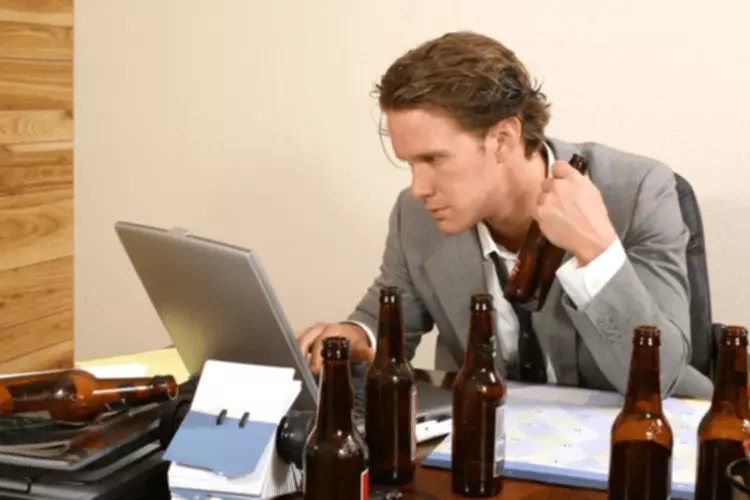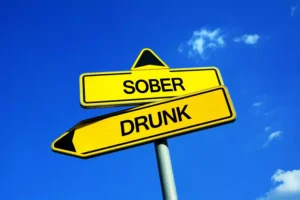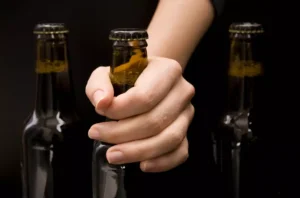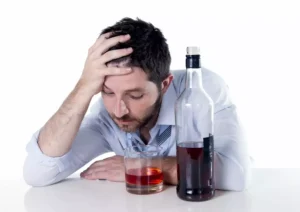
Addiction treatment centers often talk about “powerless” as a way to describe the feeling of being unable to control one’s life. This is different from the inability to manage one’s life, which is what most people think of when they hear the word unmanageable. In fact, many people who struggle with addiction feel like they have little power over their disease but still want to change. The 12-step program is based on the belief that one day at a time we can take control of our lives by making positive changes.

Addiction and Mental Health Resources

Your counselor can help you learn strategies to stop drinking and can be one of the people you reach out to when you are struggling. Sometimes alcoholics keep their desire to drink secret because they’re ashamed or think that deciding to quit drinking means they aren’t supposed to be tempted. By admitting to at least one other person that you’re having a hard time with your sobriety in Step 1 of AA, you acknowledge that you are having difficulty maintaining control in regards to alcohol. Alcoholics Anonymous Step 1 is the beginning of a 12-step program to get and stay sober. Taking this first step and admitting you are struggling with alcohol misuse can be difficult, but it is the foundation of all positive change according to AA. AA is a recovery program for multiracial men and women who are suffering from an alcohol use disorder.
Tools and Practices for Embracing Powerlessness

By embracing powerlessness, individuals in recovery gain the strength to face the challenges of sobriety with humility and resilience. It becomes an empowering realization that true strength lies in surrendering to the process and seeking the necessary help and guidance to overcome addiction. Contrary to the perception that powerlessness implies weakness, embracing powerlessness in sobriety can actually be a source of strength. It takes courage and self-awareness to confront the reality of addiction and acknowledge the need for help. By accepting powerlessness, individuals open themselves up to the possibility of transformation and growth. Humans naturally gather together, which is why group therapy remains a powerful therapeutic tool for alcohol addiction.
I’m Seeking Help
- As we go through the process of Step One, we are moving from a lack of awareness into an awareness of the reality of this disease and the possibility of change.
- Last year, we expanded our services to include robust mental health treatment, a new outpatient location, and specialized programming for our nation’s veterans, with more to come this year!
- Our body (and brain) inherently seek self-preservation; we recoil from pain, avoid things we view as dangerous and feel good when engaging in activities that are healthy like exercising or eating vegetables.
- As we yearn for the “good old days,” we’re sold the illusion that a specific brand of liquor can magically transport us back.
- Mayo Clinic does not endorse any of the third party products and services advertised.
Step one asks you to identify out loud that you have continued to use substances despite this use impacting your life and or the lives of others negatively. It is a beautiful paradox, that being “powerless” can ultimately empower one to make significant meaningful long-lasting change. To admit powerlessness over alcohol (or drugs) means accepting the fact that you’ve lost control over your substance use. You accept that your life, either internally, externally or both, has been impacted by maintaining the use of a substance and this addiction has negatively influenced your thoughts and actions. The impact of drugs and alcohol on your body over time renders your natural brain functions and mechanisms powerless.
From step one, you can continue to the rest of the 12 steps and 12 traditions. “We admitted we were powerless over alcohol—that our lives had become unmanageable.” “We admitted we were powerless over alcohol—that our powerless over alcohol lives had become unmanageable. We came to believe that a power greater than ourselves could restore us to sanity.” In this context, it means that someone feels like they don’t have any control over their life.
What Are Some Examples of Powerlessness?

Our nationally accredited substance abuse detoxification & treatment center is one of the most highly respected programs in the country. Susan is no stranger to the fields of behavioral health and addiction. She has over 25 years of experience, working in an inpatient setting, an outpatient setting, acute stabilization and nearly all other settings in the realm of addiction recovery. Acknowledging your powerlessness is liberating because it helps you realize the things you are powerless over so you can devote your energy to your actions–the things you can control. You may be powerless over addiction, but you aren’t powerless, period. Once you realize what you can and cannot change, you’re actually quite powerful.

When you’re able to accept the fatal progression of your alcohol use disorder, you can’t continue living in denial. You must first adopt attitudes and actions of being honest and sacrificing your time and energy to help yourself and other sufferers. The main criterion for a successful First Step is a person’s acceptance that they do, indeed, have the disease of addiction.
Further, groups with trained leaders, such as AA sponsors, can positively promote substance abuse recovery. These include reducing isolation, providing a support system, and witnessing the healing of others. Worldwide, alcoholics, addicts and treatment professionals embraced the Twelve Steps, and more than 35 million copies of AA’s Big Book have been distributed in over 70 languages. Families can also find support in 12 step based self-help in groups such as Al-anon and Nar-Anon. Because the journey to sobriety is full of forward steps and backward ones, it may be necessary for some people to return to this step multiple times. The path to recovery is rarely a straight line, but a series of twists and turns.
- Acknowledging your powerlessness is liberating because it helps you realize the things you are powerless over so you can devote your energy to your actions–the things you can control.
- The therapist would help you, and your family members better communicate with each other and strengthen your relationships.
- If you try to abstain, but then obsess over alcohol or switch to another drug or behavior, that’s a red flag.
- In fact, many members don’t perceive a need for a “higher power.” Instead of seeking spirituality, which helps in recovery, they seek assistance from the AA fellowship.
- It involves acknowledging that attempts to control or manage addiction have been unsuccessful, leading to negative outcomes.
- Most examples of powerlessness in sobriety have to do with admitting that you cannot change your behaviors on your own.
- In this article, we’ll explain the definition of powerlessness and why it’s so important in AA’s twelve steps process.













